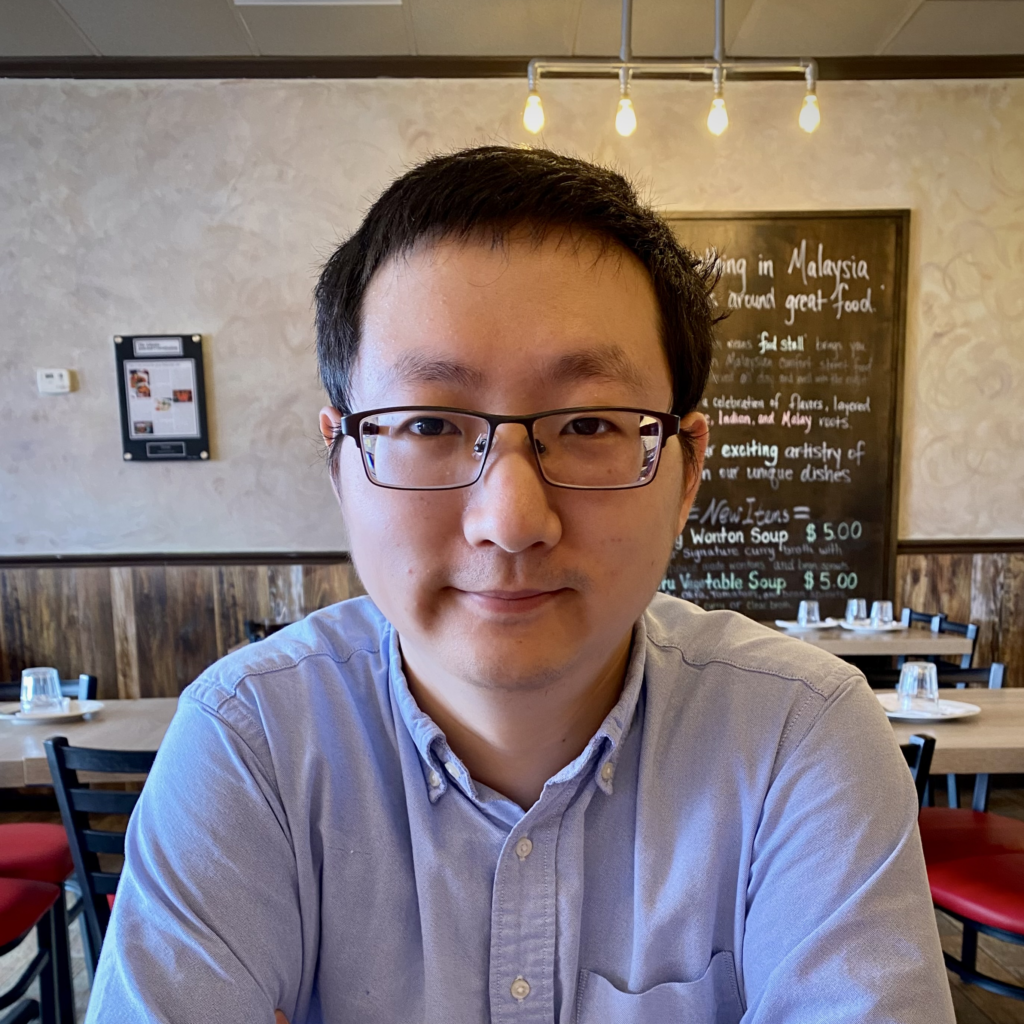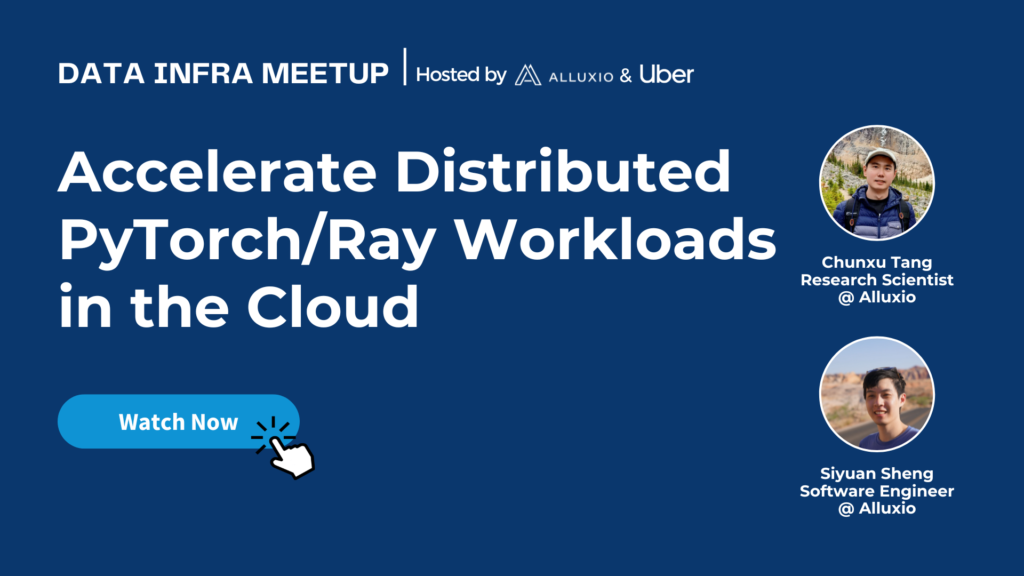Accelerate Distributed PyTorch/Ray Workloads in the Cloud
Chunxu Tang, Alluxio & Siyuan Sheng, Alluxio
SPEAKERS

Jing Zhao @Uber
Principle Engineer

Juncheng Yang
@carnegie Mellon University
5th-year CS Ph.D.

Shengxuan Lin
@ByteDance
Software Engineer

Hojin Park
@Carnegie Mellon University
5th-year CS Ph.D.

Bin Fan
@Alluxio
Chief Architect & VP of Open Source

Jingwen Ouyang
@Alluxio
Product Manager

Chunxu Tang
@Alluxio
Research Scientist

Siyuan Sheng
@Alluxio
Sr Software Engineer

Hope Wang
@Alluxio
Developer Advocate

Tarik Bennett
@Alluxio
Sr Solutions Engineer
SCHEDULE-AT-A-GLANCE
See You Soon!
Times are listed in Pacific Daylight Time (PDT). The agenda is subject to change.






